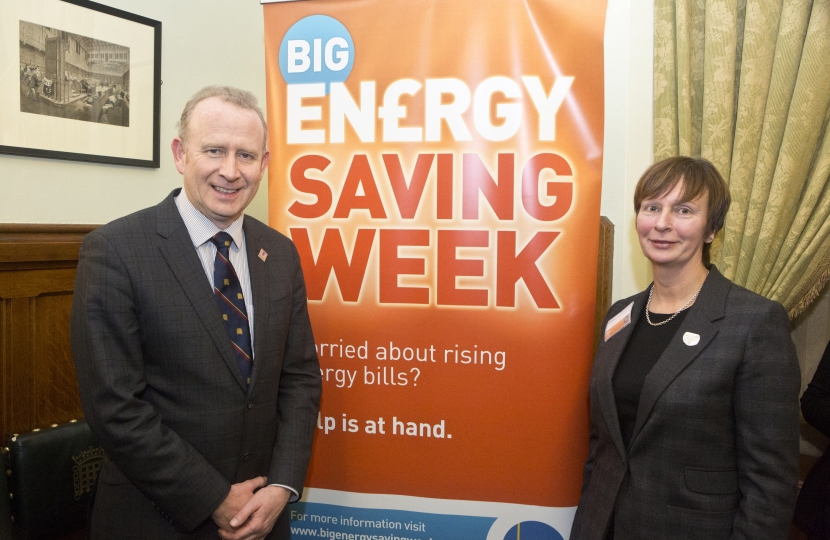
Graham has supported Big Energy Saving Week, which is helping people across Weaver Vale to cut hundreds of pounds from their energy bills.
Graham said: “I am very supportive of this campaign, which gives practical advice on how to save money by checking, switching and insulating their homes. I encourage everyone to see what they could do to reduce their bills and make sure they aren’t paying more than they need to.
“Big Energy Saving Week is run by Citizens Advice and supported by charities, the Government and the energy industry. By following the advice, consumers could save:
• £100 average saving paying by direct debit rather than cash or cheque
• Up to £200 saving for switching tariff or supplier if you have never switched before
• £320 average saving from insulation and other energy saving measures.
“To help people take control of their bills Citizens Advice has released ten top tips to help you check, switch and insulate.
1. Check your bills carefully and read your meter regularly. This will allow you to check how much energy you use and make sure you’re paying the right amount.
2. Talk to your supplier if you think your bill is wrong or if you have problems paying. They’ll be able to give you advice about available support or talk you through repayment options.
3. If money is tight, contact your local CAB. They can check to see if you are getting the benefits you are entitled to, or if you can get help paying your bills.
4. Make sure that you’re on the cheapest tariff. Check with your supplier and use an accredited switching website to see who’s offering the best deal. Tariffs are changing in 2014 so it is important that you are aware of your current deal and any changes your supplier is planning.
5. Most energy suppliers offer fixed price tariffs, where the price of a unit of energy will stay the same for the length of the deal. These can work out cheaper in the long term and make it easier to budget – although you might need to pay by direct debit and your bills will still go up if you use more energy.
6. If you use a pre-payment meter, remember that standing charges will be added daily - even when you aren’t using energy. Check how much they are and keep your meter topped up even during warm weather to avoid unexpected charges
7. If you use heating oil as your main fuel, buy before winter and see if there are any local oil buying clubs you can join. If not, you might want to start your own.
8. Make your home energy efficient – insulate lofts and walls, double glaze or use thick curtains to keep the heat in, and get your boiler serviced or replaced to ensure it is energy efficient. There are schemes to help with this.
9. Save money and energy – don’t leave appliances on standby or leave laptops and mobile phones on charge unnecessarily. Fix leaking taps and always turn off the light when you leave a room.
10. Do a home energy check to find out about savings of up to £250 a year on household energy bills. Visit the Energy Saving Trust home energy check at hec.est.org.uk. Use this check to get a full report with details of your home’s energy use and the savings you could make.”
You can also get help and advice online by visiting www.bigenergysavingweek.org.uk
